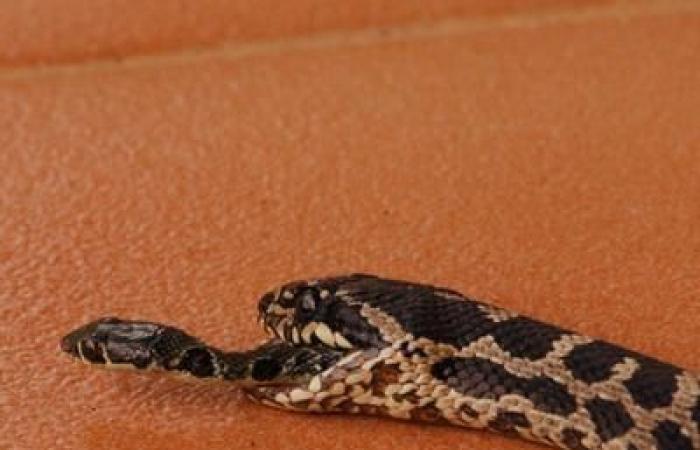This mysterious affair took place in 2011, on the Greek island of Corfu. Incredibly, a snake managed to escape from the mouth of a much larger snake that had swallowed it whole.
This Dahl snake (Platyceps najadum), managed to escape from the mouth of its predator, a four-lined snake (Here the quatuorlineata), widespread in Greece, itself later killed by a domestic cat.
The cat’s owner, Dutchman Dick Mulder, filmed the event at his home in Corfu, after collecting the dead snake from his garden.
“My wife, who didn’t like the idea of a dead snake on her porch, shouted that the snake wasn’t dead – she had just seen it move,” he said. “I reassured her that he was really dead,” Mr. Mulder recalls… until he looked closer.
“I went to get my camera and when I came back I saw the head of a small snake. »
The Dahl snake eventually broke free and returned to the wild, apparently unharmed.
“As far as I know, he hasn’t crossed paths with his savior, Demon the Cat,” Mulder joked.
Andrew Gray, curator of herpetology at the Manchester Museum in the United Kingdom, first reported this strange incident in January 2015.
Corfu snake expert Mr Gray said the spectacular escape of the smallest snake was rare. He knows of only one other example of a snake escaping after becoming another’s last meal – in that case, the reptile had extricated itself from the wound of a snake shot by hunters.
It is also unusual for a Dahl’s snake to successfully escape from the mouth of a dead snake, given that snakes typically swallow their prey starting at the head, “especially for rodents whose legs can become entangled.” along the way,” Gray points out. That said, “it was a small snake, so it was probably eaten the way it looked.”
And if the Dahl snake had to turn around in the belly of its predator to escape, Gray believes that it was “small and agile enough to perform this trick”.
Agile or not, how could one snake survive inside another? The only answer is that the larger snake had just eaten its prey before the cat intervened.
Otherwise, the effects of the larger snake’s digestive fluids would have been fatal to the smaller one, a more likely cause of death than suffocation or crushing by constriction, given the thinness of the prey snake.
The devoured snake was also lucky enough to be preyed upon by a four-lined snake, the largest snake native to Europe whose bite is not venomous.
All in all, then, this is a very lucky snake, which owes its salvation to a cat. With nine lives, perhaps he could afford to share one.






